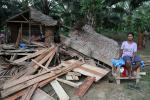In 2011, the World Bank Group (WBG) adopted a Framework and Strategy for investment in the palm oil sector. The new approach was adopted on the instructions of former World Bank President Robert Zoellick, after a damning audit by International Finance Corporation’s (IFC) semi-independent Compliance Advisory Ombudsman (CAO) had shown that IFC staff were financing the palm oil giant,
Wilmar, without due diligence and contrary to the IFC’s Performance Standards. Wilmar is the world’s largest palm oil trader, supplying no less than 45% of globally traded palm oil. The audit, carried out in response to a series of detailed
complaints[1] from Forest Peoples Programme and partners, vindicated many of our concerns that Wilmar was expanding its operations in Indonesia in violation of legal requirements, Roundtable on Sustainable Palm Oil (RSPO) standards and IFC norms and procedures. Almost immediately after the audit was triggered, IFC divested itself of its numerous other palm oil investments in Southeast Asia.









